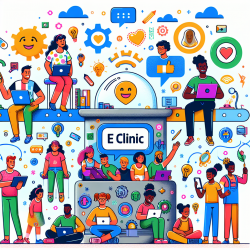The global fight against HIV/AIDS has seen significant progress over the years, yet challenges remain. A recent study titled "Can we spend our way out of the AIDS epidemic? A world halting AIDS model" provides valuable insights into how strategic spending could potentially eradicate this disease. This blog aims to help practitioners improve their skills by implementing findings from this research or encouraging further exploration.
The Importance of Strategic Spending
The research highlights that while there has been an increase in funding for HIV/AIDS prevention and treatment, the current approach of spreading funds over a long period may not be effective. Instead, rapid and strategic spending could lead to the eradication of HIV/AIDS within a shorter timeframe. The study suggests that a concentrated effort to reduce the infection rate by two-fifths could be achieved with existing funds if spent strategically within five years.
Key Findings
- Rapid spending is more effective than spreading funds over decades.
- A reduction in infection rates to two-fifths of current levels is necessary for eradication.
- Immediate action is crucial to prevent the epidemic from outpacing available resources.
Practical Applications for Practitioners
For practitioners in the field of online therapy services and healthcare, these findings offer several opportunities to enhance their practice:
1. Advocate for Immediate Action
Encourage stakeholders and policymakers to consider rapid deployment of resources. Highlight the potential benefits of immediate action in eradicating HIV/AIDS, as supported by mathematical models.
2. Focus on Education and Prevention
Implement educational programs that emphasize prevention methods such as condom use and safe practices. These interventions can significantly reduce infection rates when combined with strategic funding.
3. Collaborate Globally
The study underscores the need for a global approach rather than isolated efforts. Practitioners should collaborate with international partners to ensure interventions are applied globally, addressing travel and immigration-related challenges.
Encouraging Further Research
The study serves as a starting point for further exploration into optimal spending strategies. Practitioners are encouraged to delve deeper into the research and explore additional models that could refine these findings. By staying informed through conferences, publications, and webinars, practitioners can contribute to evolving strategies that address the HIV/AIDS epidemic effectively.
Conclusion
The research presents a compelling case for rethinking how resources are allocated in the fight against HIV/AIDS. By focusing on rapid and strategic spending, practitioners can play a pivotal role in achieving global eradication goals. Immediate action is not just beneficial but necessary to halt this epidemic before it becomes unmanageable financially and logistically.
To read the original research paper, please follow this link: Can we spend our way out of the AIDS epidemic? A world halting AIDS model.










